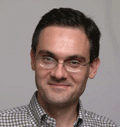
Degree Date: PhD, 2004
Program: Management
Placement: New York University Stern School of Business
After pursuing a PhD in his native Italy, Gino Cattani realized that to become a serious researcher, he’d have to embark on a more intensive program abroad. Under the direction of Edward Bowman, whom he met during his year as a visiting fellow at MIT, Cattani decided to redirect his education at Wharton.
Cattani celebrates Wharton’s interdisciplinary approach to learning, which steered him towards looking at his research with an evolutionary perspective. Currently a professor at New York University’s Stern School of Business, Cattani recalls his decision to do his PhD in the United States, the impact of Wharton’s faculty on his work and the value of thinking both broadly and deeply.
Why Wharton?
The real driving force to get my PhD was the desire to acquire the analytical skills and formal training required to be part of the international community of social scientists in the management field. In Italy, given the nature of the program, I didn’t have the chance to develop those skills. The only alternative for me was to move abroad and go for a serious PhD.
I wanted to become a researcher, and Wharton is one of those top schools that everyone wants to go to. I was already in a PhD program in Italy, but it was very unstructured. I was concerned about the education I was receiving. I spent a year as a visiting fellow student at MIT from 1995-96 and was exposed to a different environment. I realized I needed a different kind of formal education to become a serious researcher.
Eye opening
My background is in accounting, but I developed a strong interest in strategic management, broadly speaking, and what conditions lead to differences in performances among firms specifically. Wharton is a leading institution in that area of study.
When I arrived in Philadelphia and started taking PhD seminars, it was eye-opening. A seminar taught by Sidney Winter — who then became my main advisor — was probably one of the most intellectually stimulating experiences for me because it gave me a unique evolutionary perspective. It changed my way of thinking. For my dissertation, being at Wharton was perfect because I had the good fortune of interacting with one of the leading scholars in evolutionary economics. Dan Levinthal was another committee member who influenced me, especially his work using an evolutionary lens. And Johannes Pennings — another committee member — was a great mentor throughout the entire program.
An amazing intellectual environment
The style of learning is interdisciplinary. Some of the faculty members, in their research, were using an interdisciplinary approach, and it was strongly encouraged for students. In my dissertation, I borrowed concepts in evolutionary biology and took some classes in the biology department. That was more than welcomed; it was encouraged. This open-mindedness and flexibility was probably one of the most distinctive features of the management department. When I talk with some of the former PhDs from Wharton, we all agree that it was an amazing intellectual environment. The driving force was going after interesting ideas.
But there was also an emphasis on really delving into a topic—so it was a nice combination of breadth and depth. On the one hand, you were encouraged to become a specialist but at the same time, to think more broadly and see links to other disciplines. That was one of the great strengths of the Wharton PhD program.
Sincere mentorship
The faculty members working with PhD students were very generous with their time. They always managed to find the time to spend with each student. I can’t remember anyone complaining. We got the attention we wanted.
That also meant the doctoral student was supposed to deliver. There was a lot of sincere mentorship, but also the expectation that the PhD student had to take initiative and meet certain expectations. Lazy students were not well accepted.
Challenges
There are two other major challenges: One is to stay focused. It’s very easy to get distracted, especially in a program like Wharton, which is interdisciplinary. The potential risk is to spread your research interest over many different things. In an eclectic department, that is even easier to do. It’s easy to flirt with different ideas and things.
The other challenge is to find the right research question and to really push the envelope in that regard. Your advisor can help you with it, but since it’s your research, it’s up to you to see it through and find something new to say about a topic.
Advice for applicants
I have two pieces of advice. One is captured nicely by a famous quote from Albert Einstein: “Imagination is more important than knowledge.” You can be really knowledgeable about any subject, but at Wharton, what is appreciated is your ability to be creative in your thinking and research once you’ve acquired that knowledge. That is something that should be driving any PhD student. Anyone can be knowledgeable about a topic, but not everyone is equally imaginative. Even if you are not imaginative by nature, you should push the envelope and take risks.
The other piece of advice is to enjoy what you are doing. Even when you are going through the pain of taking exams or trying to find an interesting topic to research, you need to enjoy what you are doing. If you are doing it to fulfill some requirement, you are in the wrong place.


